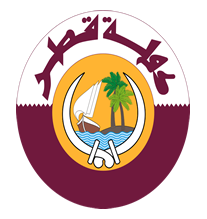Qatar: Government
Key Figures
- Chief of State:
- Amir Tamim bin Hamad Al Thani
- Head of Government:
- Prime Minister and Foreign Minister Muhammad bin Abd Al-Rahman Al Thani
Overview
- Government Name:
- State of Qatar
- Constitution:
- Adopted: 2004; Divided into parts which discuss the state and bases of rule, the guiding principles of the society, public rights and duties, and organization of powers.
- Government Type:
- Emirate

Index of Economic Freedom
Country Risk Rating
Government Branches
| Main Powers | Election Process | Election Cycle 1 | |
|---|---|---|---|
| Executive | Emir cannot violate Islamic Law, or Sharia, and has preeminent power. Prime minister heads the government of Qatar. |
Emir is hereditary and prime minister is appointed by monarch. |
Prime minister's office openings are subjected to the monarch's decision. |
| Judicial | Court of Cassation is a high instance court that verifies the interpretation of law. Supreme Constitutional Court resolves disputes that arise from implementation of final judgments that are made by lower courts and judicial bodies. |
Court of Cassation judges are nominated by the Judicial Supreme Council, while the Supreme Constitutional Court is nominated by the Judicial Supreme Council and appointed by the monarch. |
Court of Cassation: 3 years; Supreme Court: No specific office cycle |
| Legislative | Majlis al-Shura are constitutionally responsible for approving the national budget, monitoring the performance of ministers through no-confidence votes, and to draft, discuss, and vote on proposed legislation. |
Advisory Council members are appointed by the monarch and 30 members are elected by popular vote. |
3 years |
Regional Trade Blocs
International Organization Participation [2]
Environmental Agreements [3]
Tax Information [2]
- Tax Authority:
- Information not available
- Tax Name:
- Information not available
Sources:
- ElectionGuide http://www.electionguide.org/
- EY, http://www.ey.com
- CIA World Factbook, https://www.cia.gov/the-world-factbook/
- U.S. Bilateral Relations Fact Sheets http://www.state.gov/r/pa/ei/bgn/


